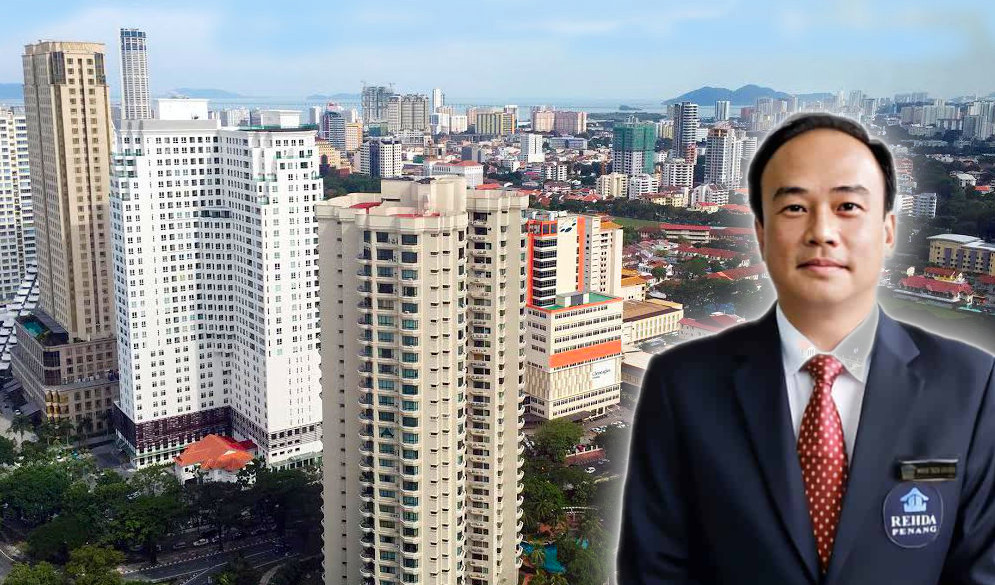Penang REHDA expects property market performance to improve in 2023

The Penang Real Estate and Housing Developers Association (REHDA) hopes that the performance of the country’s real estate market for 2023 will improve compared to previous years.
Penang REHDA chairman Khoo Teck Chong said he expects the real estate market, especially the residential property subsector in Penang, to show positive momentum in line with the expected economic recovery.
“And coupled with the spike in the price of building materials, inflation rate and the shortage of labor has affected the overall cost and performance of the market.
“Personally, I see that this year’s performance based on the data of the first quarter of this year (Q1 2022; released by the National Property Information Center (NAPIC) Property Valuation and Service Department), is improving compared to 2021.
“I believe market transactions have also increased both in number and value when compared to the year during the pandemic and after the pandemic until now entering the fourth quarter of 2022 (Q4 2022),” he said.
According to Teck Chong, apart from ensuring that housing unit supply is in line with demand, attention should also be paid to the situation of unsold or overhang housing units.
“As for the overhang data, we need to scrutinize it better and thoroughly so that the issue of mismatch can be contained and unsold residential units can be reduced.
“I have also brought this issue to the attention of the Penang State Government in ensuring every decision is appropriate and does not contribute to the slowdown of the stock in the future,” he explained who also understands the constraints faced at the state level, especially in helping the developers today.
He added that in addition to incentives in assisting developers and ensuring that housing units can be sold, the State Government and interested parties in the housing subsector can also consider several other financial incentives, for example.
“For example, giving a large incentive for a year in 2023 (to developers) by reducing the development charges and the amount of contribution between 50 to 70 percent, will give a boost to the overall performance of the market (housing subsector).
“And at the federal level, perhaps the Federal Government can look at the exemption of levy imposed (on the total value of construction work) involving construction materials, where the price of construction materials has increased significantly, especially after the pandemic.
Earlier at the launch of the First Half of 2022 Property Market Report at INSPEN in Selangor, it was noted that the property market recorded over 188,000 transactions worth RM84.40 billion in the first half of this year (H1 2022) with the residential subsector accounting for over 60% of all transactions and almost 54% of transacted value.
This represents an increase of over 30 percent in terms of number (34.5 percent) and value (36.1 percent) compared to the same period last year (2021).
The number of subsector transactions also showed an upward movement where the residential land subsector recorded year-on-year growth at 26.3 percent; followed by commercial (45.4 percent); industrial (49.5 percent); agriculture (57.4 percent) and development land (35.0 percent). The transaction value also moves along with the growth of the subsector where the residential subsector dominates the entire property market with a contribution of 61.8 percent.
In fact, according to the report, there were 116,178 transactions worth RM45.62 billion recorded for the residential subsector, an increase of 26.3 percent in number and 32.2 percent in value year-on-year. Four key states recorded higher numbers, namely Penang with a 37.8% increase; Kuala Lumpur (28.4%); Johor (20.2%) and Selangor (16.0%).
Source: Buletin Mutiara


Giving financial incentive to developers is always a bad move, not only it distorts natural free market, it also encourages reckless building in undesired locations, causing unwanted overhang. A market slowdown or even a crisis is always good for “natural selection”, the fittest survive, the weak ones die. There is nothing to worry about, the market will sort out itself, and given time, the industry will gradually become more competitive and nimble.
As the regulator or state administrator, all you have to do is to make sure there is no “cheating”. “Cheating” by way of developers building more than the allowable plot ratio, re-development land set-back must be strictly adhered to, no false and misleading info being spread in the market (like the recent Gurney Drive bungalow lots purchased by Hong Kong tycoon) and so on. Once rules are transparent, no cheating, all stake holders (developers, home buyers, property investors etc) would adjust accordingly for a healthier market.